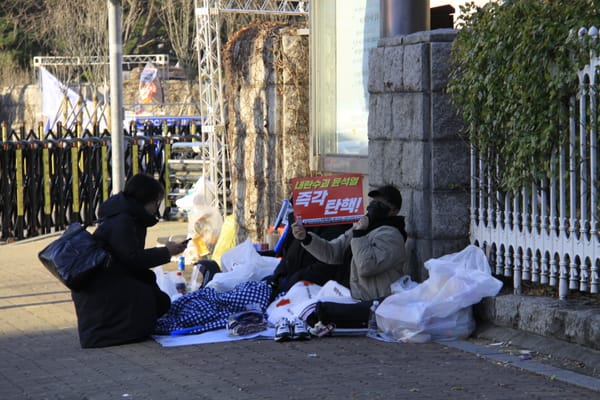Asia Undercovered 25 June 2020
This week: Singapore calls elections, the legacy Tiananmen for Uyghurs and the Chinese PLA, and a surprising solution to Pakistan’s locust crisis.
Singapore Elections
Elections have been called in Singapore, and will take place on July 10th.
If you think America’s election season is too long (and it is), Singapore is on the other end of the spectrum. The opposition has just 2.5 weeks to mount a campaign against the longtime ruling incumbent People’s Action Party, and Prime Minister Lee Hsien Loong, the son of longtime ruler Lee Kwan Yew.
To follow the election, I recommend New Naratif. Their explainers, including a A Brief History of Elections in Singapore and Explainer: Singapore’s Electoral System are must-reads to understand the electoral context.
Latest development – the Prime Minister’s brother, Lee Hsien Yang, has joined a new opposition party in what has been a long brewing family feud. There’s also the question of how Singapore’s pandemic response – the city state has among the highest case load in Southeast Asia – and economic slowdown will impact the ruling party.
In the end, it might not matter. The system is so stacked in favor of the PAP, calling Singapore a democracy might be a stretch. Of course, that’s what everyone said about Malaysia two years ago, and we know how that turned out.
Undercovered this week
The latest attempt by Narendra Modi’s government in India to divide the country by religion is focusing on Malappuram, the only Muslim-majority district in all of South India. But as K.A. Shaji finds, the reality there doesn’t reflect the BJPs rhetoric – at all (The Logical India).
Everyone remembers what happened in 1989 in Tiananmen square. But there was a similar movements in Xinjiang too, led by Uyghur students. Dolkun Isa was there, and reflects on his memories of their 1989 for The Diplomat.
Also worth noting – the role, and dilemma, faced by the Chinese military during and after the Tiananmen crackdown.
Worth reading: This in-depth investigation by Hideaki Kimura in Waseda Chronicle dives into the banana supply chains, which connects Japan with the Philippines, and the widespread labor abuses that take place on industrial plantations.
The conviction of Maria Ressa got a lot of attention last week, but she’s is just one of many journalists facing arrest in Southeast Asia. Here’s another – Le Huu Mihn, a Vietnam-based journalist arrested on “anti-state” charges (CPJ).
Geopolitics
To many China’s Taiwan policy seems confusing. There is a logic, though – disrupt, isolate, and constrain, argues Rodger Baker. Worth reading as 2020 is likely to see more aggression from China against its smaller neighbor (Stratfor).
In this provocative piece for 9Dashline, Charles Dunst argues that Chinese damn-building along with climate change is turning the basin into the next South China Sea – with downstream countries Thailand, Vietnam, Cambodia and Laos facing the impacts of water shortages and environmental degradation.
In a surprising move, Indonesia raised the 2016 ruling by the Hague on China’s over-reach in the South China Sea, a sign that the region may be coming closed to jointly opposing growing Chinese intrusion into their territorial waters (Rappler).
Solutions Stories
Due to both the ongoing pandemic, but also increasing anti-LGBTQ repression in the region, Taiwan will host the only Gay Pride event in Asia this month, traditionally when such events are held. In this piece, Curve editors write about the wider meaning of this event in a trying time.
Remember the massive locust invasion, impacting parts of South Asia? Well, in Pakistan, some people have found a simple, effective solution – turn the pests into protein, and income, for chickens, lessening their impact on agriculture without resorting to dangerous chemicals (Rina Saeed Khan, The Third Pole).
Asia Undercovered: Journalist Nithin Coca’s weekly roundup of the news, events, trends and people changing Asia, but not getting enough attention in the US media.



